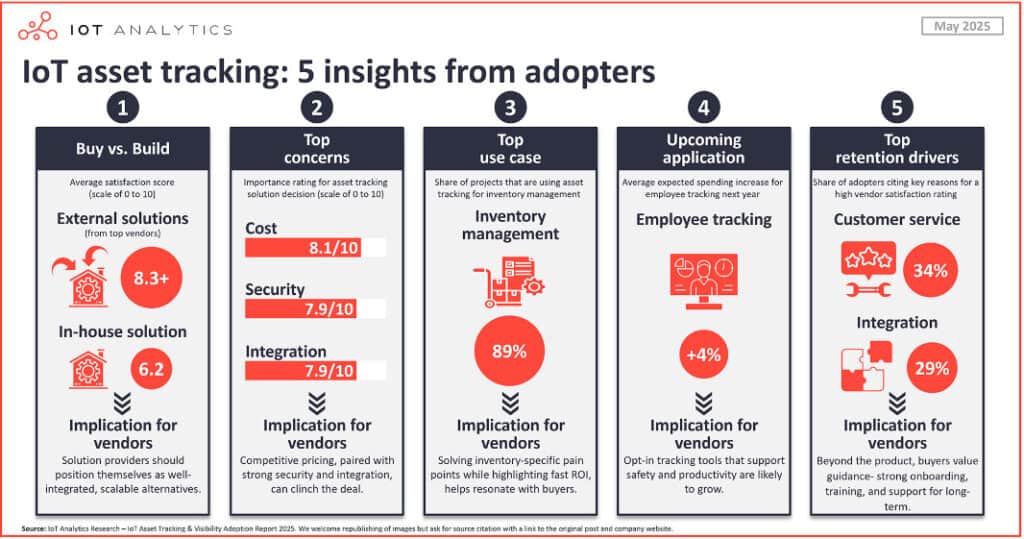A new report by IoT Analytics reveals that 74% of businesses deploying IoT asset tracking solutions meet or exceed their return on investment (ROI) expectations. This finding highlights the growing importance of asset tracking in operational strategies across various industries.

According to the “IoT Asset Tracking & Visibility Adoption Report 2025,” companies are investing an average of $110 per asset annually to track inventory, equipment, or vehicles. The report indicates that businesses prioritise strong vendor support and seamless integration capabilities over an extensive list of features. This shift in focus underscores a significant evolution in buyer expectations, moving beyond mere functionality to emphasise holistic value.
Dimitris Paraskevopoulos, senior analyst at IoT Analytics, stated, “Asset tracking has moved from a niche IT initiative to a core operational priority. Our latest research reveals a significant 74% of asset tracking projects are delivering tangible ROI. This success is fundamentally shifting buyer expectations beyond just features.”
The report also highlights a stark contrast in satisfaction levels between commercially available solutions and in-house developed tools. Companies relying on internal systems reported the lowest satisfaction scores, often citing issues such as lack of reliability, poor integration, and insufficient support.
In contrast, those using leading commercial vendors expressed higher satisfaction, with many noting that support services are now crucial differentiators affecting long-term adoption.
Cost considerations remain paramount for adopters, but security is nearly as important. The report indicated that while inventory management is currently the top use case for asset tracking, employee tracking is expected to emerge as the next significant growth segment.
As businesses continue to navigate the complexities of supply chain management and operational efficiency, the insights from this report provide valuable guidance. Companies looking to implement or upgrade their asset tracking solutions should consider not only the capabilities of the technology but also the quality of vendor support and integration options.
“Today’s adopters are looking for holistic value, where cost-effectiveness, security, and integration are critical decision factors,” concluded Paraskevopoulos.



